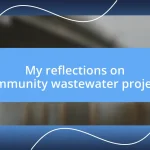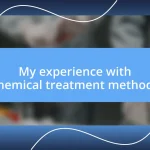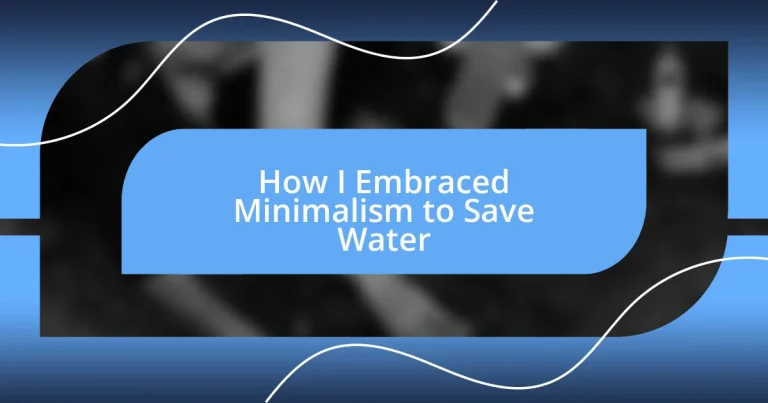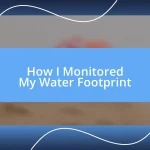Key takeaways:
- Minimalism emphasizes reducing excess to focus on what truly matters, shifting from ownership to experiences and clarity.
- Personal transformation through minimalism involves emotional attachment and reclaiming space, leading to increased reflection and gratitude.
- Adopting a minimalist approach facilitates practical water-saving habits, demonstrating that small changes can have a significant environmental impact.
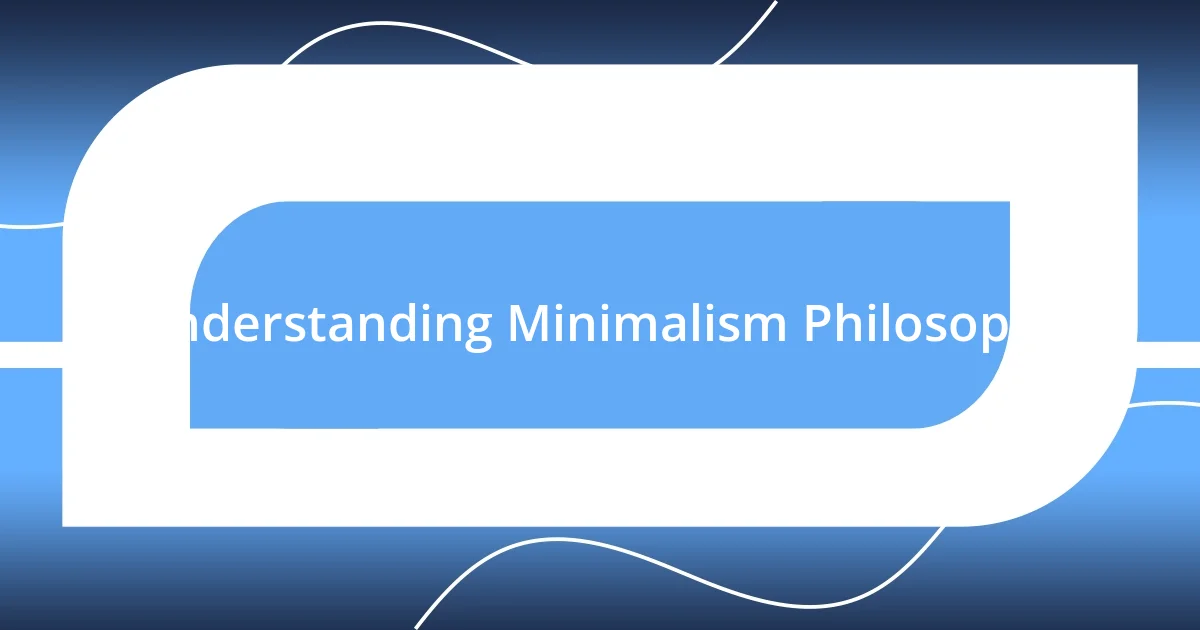
Understanding Minimalism Philosophy
Minimalism, at its core, is about stripping away the excess to focus on what truly matters. I remember the moment I stood in my cluttered living room, overwhelmed by my possessions, and realized that the more I owned, the less I cherished. Isn’t it strange how we accumulate things that end up draining our energy rather than enhancing our lives?
As I delved deeper into minimalist philosophy, I began to see it not just as a lifestyle choice but as a mindset. I found that embracing fewer physical items allowed me to create more space—both literally and figuratively—for what brought me joy. Have you ever noticed how a simplified environment can bring a sense of calm? It’s almost liberating to let go of the unnecessary.
Ultimately, minimalism encouraged me to shift my focus from ownership to experience. I still recall how donating bags of clothes felt like shedding a heavy weight I didn’t know I was carrying. What if the things we hold onto so tightly are merely distractions from living fully? Through this journey, I’ve learned that less truly can mean more—not only in our physical spaces but also in how we connect with our surroundings and our resources.
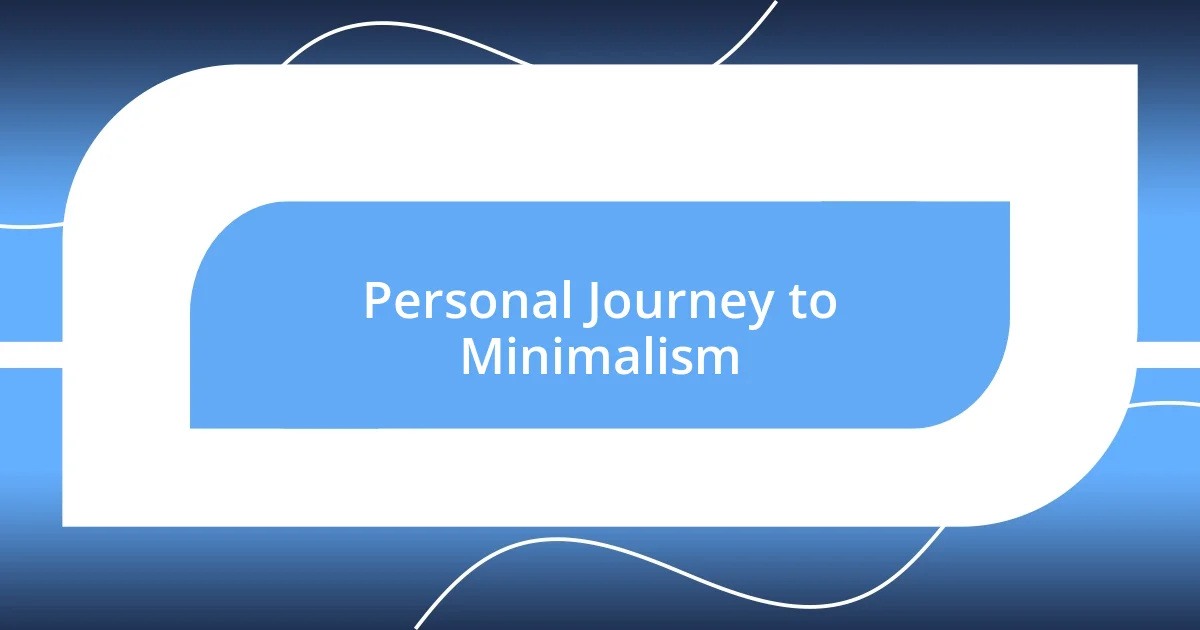
Personal Journey to Minimalism
The shift to minimalism for me wasn’t instant; it felt more like peeling an onion, layer by layer, revealing what mattered most. I vividly remember the late nights spent sorting through items, rediscovering forgotten treasures, and recalling memories attached to them. It was bittersweet; letting go of certain things felt like saying goodbye to old friends. Yet, every item I parted with brought an unexpected lightness, both in my space and in my heart.
- Clutter reflects inner turmoil: Clearing my space helped clear my mind.
- Emotional attachment: A photograph could evoke joy, whereas a dusty book became a weight on my shelf.
- Savoring simplicity: Weekly trips to donate items transformed into rituals of gratitude for what I already had.
- Space for reflection: I now enjoy moments of stillness, where I can reflect and simply be, without distractions.
- Reassessing values: Minimalism prompted me to redefine what “enough” truly meant for me.
My personal journey taught me that embracing minimalism was not just about removing possessions but about inviting clarity and purpose into my life.
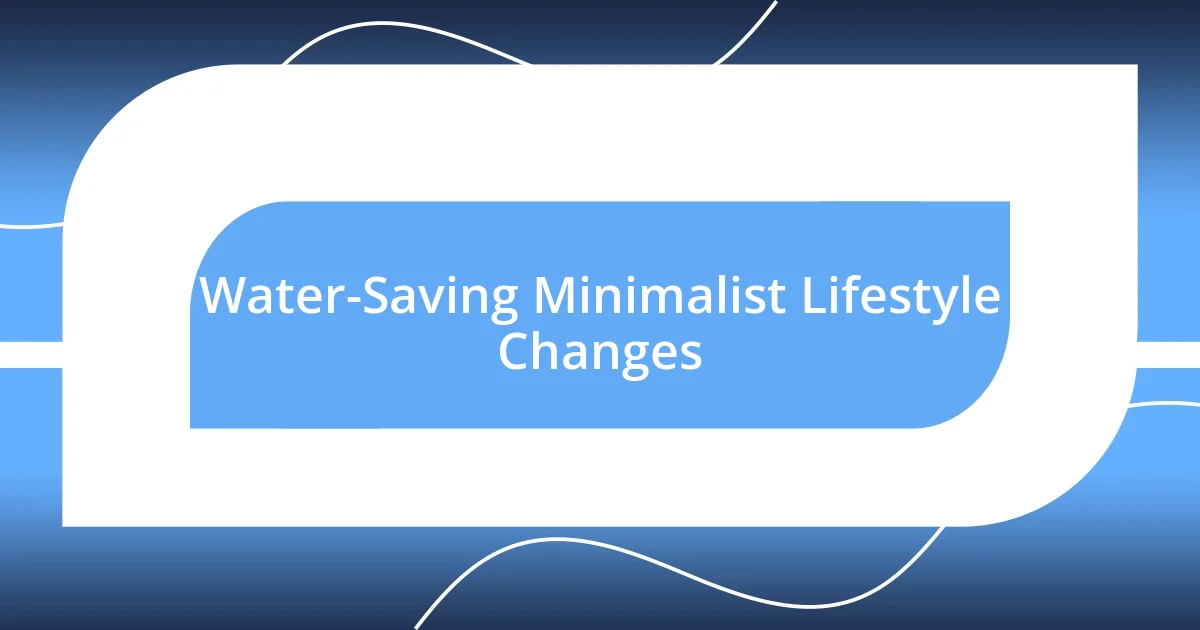
Water-Saving Minimalist Lifestyle Changes
Making water-saving changes in my life was surprisingly simple once I embraced minimalism. For instance, I swapped out my showerhead for a low-flow model. It was a small change but made a huge impact. I still remember the initial surprise of how much water I was saving every month, and it felt like I was making a difference without compromising my daily routine. Have you ever noticed how minor adaptations can lead to significant results?
I also began to look at my daily habits differently. Instead of letting the tap run while brushing my teeth, I turned it off. It’s astonishing how much water we waste in those few minutes. Now, I feel a sense of empowerment every time I remember to be mindful of my water usage. It’s a little reminder that simplicity brings clarity—not just in my living space but in my consumption as well.
Furthermore, I started using containers to catch excess water when rinsing vegetables. This practice not only conserves water but also allows me to collect it for my plants. It’s fascinating how such a small act can transform something mundane into a nurturing ritual. Doesn’t it feel good to know that we can take simple steps that positively impact our environment? Minimalism redefined my relationship with water, making every drop count.


